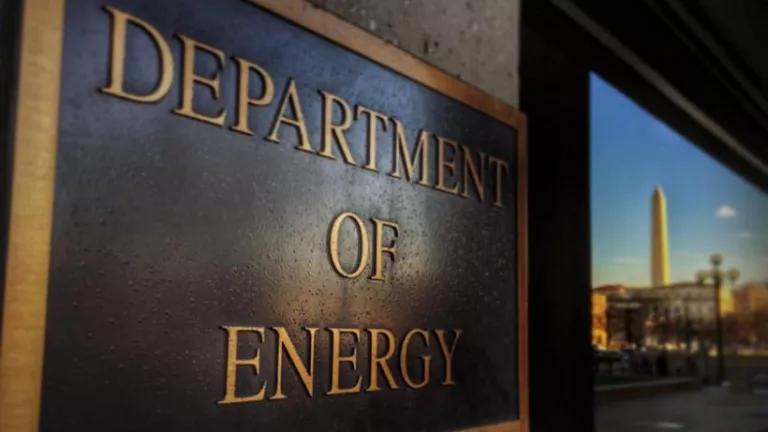House Majority Threatens Historic Investment in Buildings
H.R.1 Would Destroy Jobs and Increase Energy Waste

Worker installing insulation (Getty)
The Inflation Reduction Act (IRA) constitutes the most significant investment in combatting climate change to ever come out of Congress. Estimates show that 75,000 jobs and nearly $200 billion in investment will flow to districts represented by Republicans this Congress.
Unfortunately, we have recently seen the introduction of an attempted repeal of the Inflation Reduction Act in a bill called “H.R.1,” so it’s worth revisiting what the IRA would do for building energy use.
- 25C Residential Energy Efficiency Tax Credits would reduce the initial cost of energy efficient equipment in existing homes;
- 25D Residential Clean Energy Credit would reduce the cost of distributed renewable energy storage, increasing resilience while helping avoid the carbon monoxide poisoning associated with older standby generators;
- 45L New Energy Efficient Home Credit would provide homebuilders with incentives to build efficient homes, including homes that use zero net energy;
- 179D Commercial Buildings Energy Efficiency Tax Deduction would provide incentive for commercial building owners to save energy and use quality jobs to do so;
- Rebates to homeowners for energy savings investments;
- Incentives for low- and moderate-income households switch to electricity from higher cost fossil fuels;
- Worker training to install the latest energy efficiency equipment, creating millions of good jobs;
- Funding for state and local adoption of the latest building energy codes, including zero energy codes, which could reduce the regulatory burden associated with code development.
In addition to these buildings-specific programs, this attempted IRA repeal would also repeal the Greenhouse Gas Reduction Fund at EPA, which includes building decarbonization as a key goal.
Taken together, these provisions would help millions of households save money on their energy bills, streamline building energy code modernization, and train workers that support small businesses and trades. On the other hand, a repeal would destroy nearly 800,000 jobs. Now is not the time to backtrack on climate progress and prevent the 1.3 million new jobs, including over 250,000 construction jobs, created by the IRA.

Worker inspecting solar hot water unit


